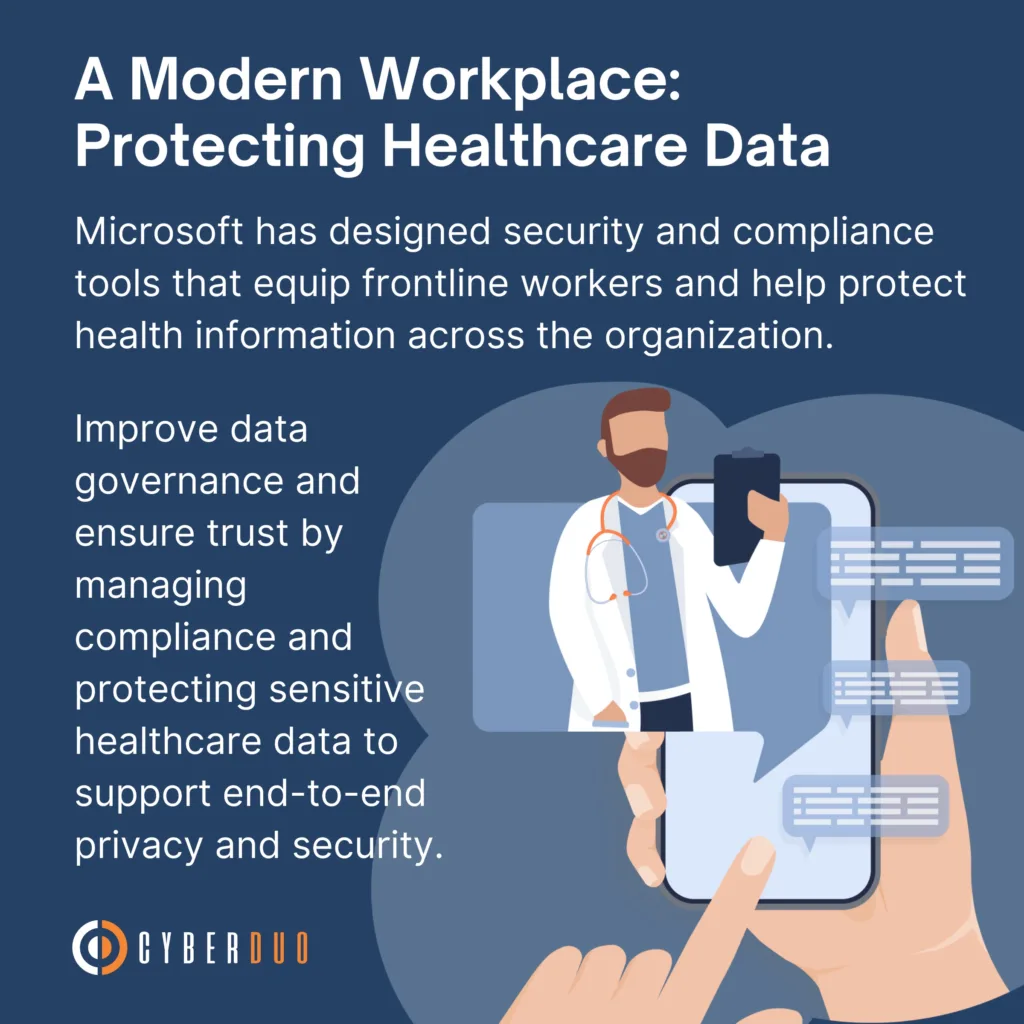
The drastic effects of the pandemic have been felt by almost every industry, especially healthcare workers at the forefront. The way health organizations approach security and compliance has changed in order to give patients the best care. In today’s fast-growing digital environment, it is a significant priority for healthcare organizations to ensure security and compliance. Data privacy and cybersecurity continue to be top concerns, especially after the pandemic caused patient care to shift into virtual healthcare and the volume of sensitive data grew.
Microsoft has designed security and compliance tools that equip frontline workers and help protect health information across the organization.
Health organizations can reduce security risks and ensure data privacy with these solutions:
- Azure Active Directory is a single identity platform that enhances security, simplifies access, and helps set smart policies. It provides multi-factor authentication and single sign-on to prevent cybersecurity attacks.
- Multi-factor authentication requires users to provide additional forms of verification to prove their identity, helping protect their accounts from attacks that take advantage of weak or stolen passwords.
- Microsoft Defender for Identity helps security teams protect identities on-premises and reduces the risk of damage by providing real-time information on attacks.
- With Windows Information Protection, enterprise apps and data stay secure and accidental data leaks are prevented, whether on enterprise or personal devices.
- The Microsoft Security and Compliance Center is a tool that allows healthcare organizations to monitor their compliance posture and meet complex obligations by configuring settings.
- Microsoft offers support for global, national, regional, and industry-specific regulations like GDPR, HIPAA, and HITRUST
In Microsoft Teams,
- Microsoft ensures encryption for data that flows between devices and Microsoft datacenters, and between datacenters, as well as data that is at rest in datacenters, which can be decrypted if organizations need to meet compliance obligations.
- Data Loss Prevention prevents data disclosure and helps monitor, identify, and protect sensitive data across Microsoft 365.
- With Advanced Threat Protection, organizations can protect users from hidden malicious software within files stored in OneDrive and SharePoint. If a file is identified as malicious, it is blocked and can’t be opened, shared, moved, or copied.
- The tools provided by Microsoft Cloud App Security organizations can identify and mitigate suspicious activity, the deletion of teams, or the addition of unauthorized users.
- Conditional Access is a tool that sets risk-based policies to give access based on conditions like user membership, IP location, device, etc. These policies, along with risk detection, identify suspicious sign-in behavior and force users to change passwords or use multi-factor authentication to reduce risk.
- Manage devices and apps by fully integrating with Microsoft Endpoint Manager. Protect and manage enterprise data by enforcing Conditional Access on devices and configuring app protection policies.
- By using sensitivity labels, organizations can control access to information in Teams. These labels can be applied to regulate access by controlling privacy settings.
Improve data governance and ensure trust by managing compliance and protecting sensitive healthcare data to support end-to-end privacy and security.